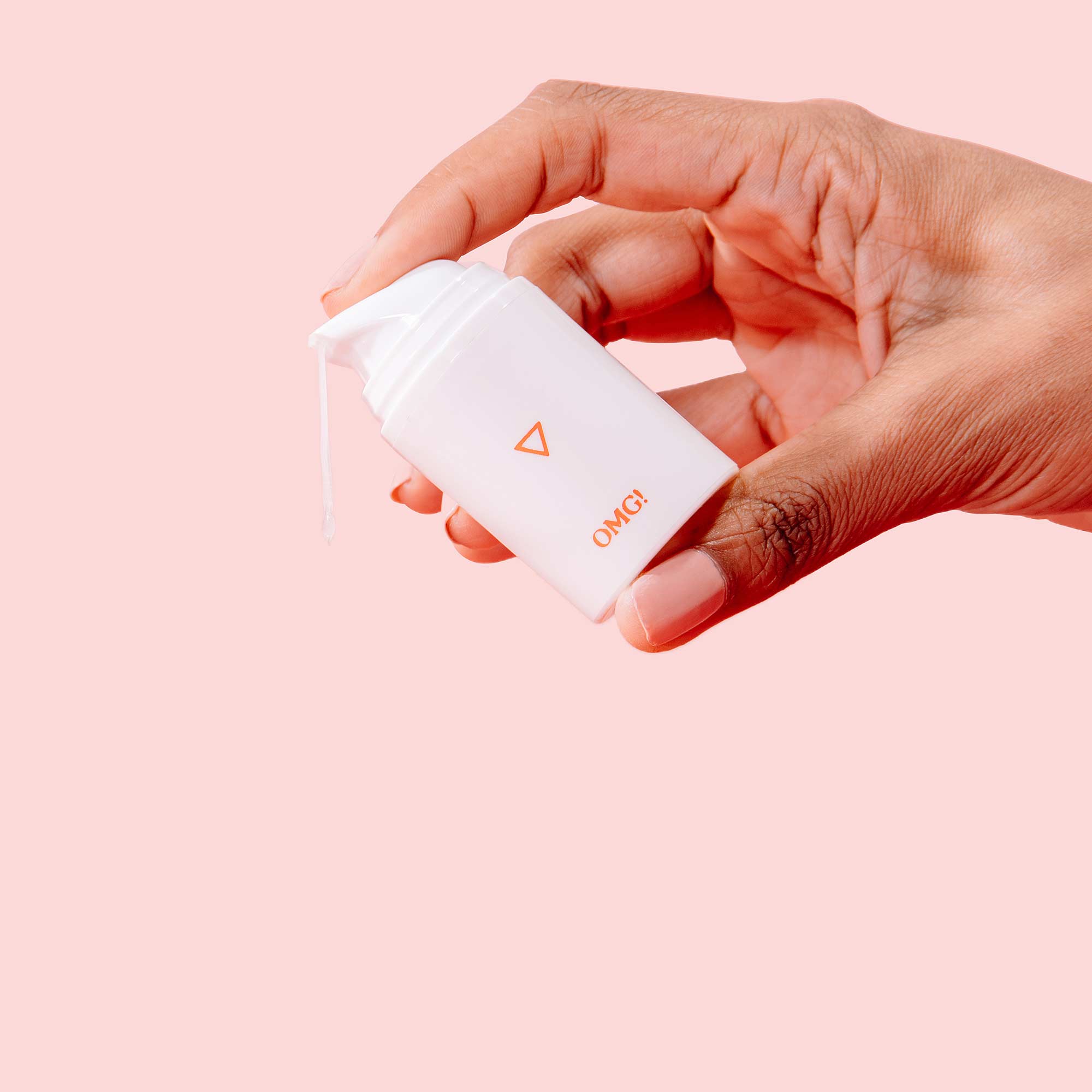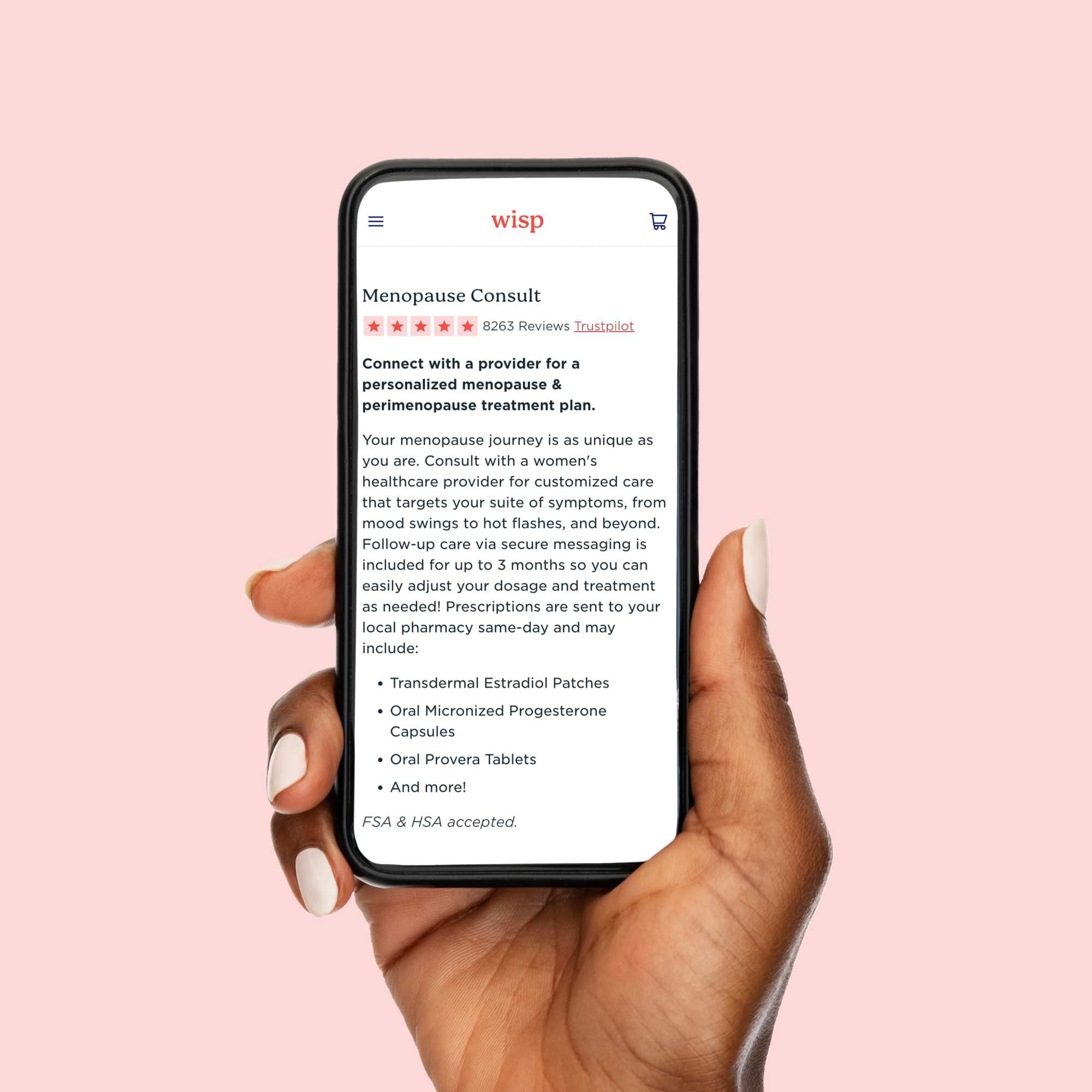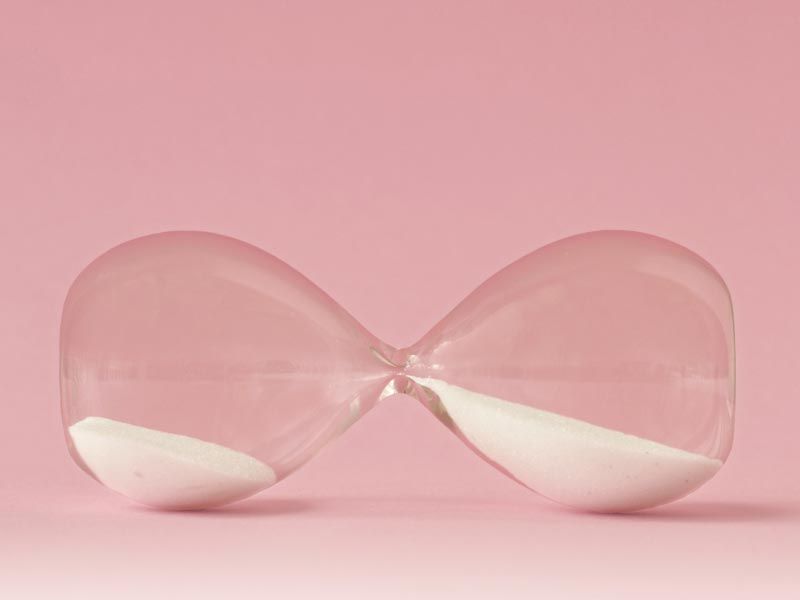
What Is Perimenopause vs. Menopause?
Published on September 19, 2024
Updated on September 19, 2025
Written by Kathleen Morrison
Medically Reviewed by Andrea Sleeth WHNP-BC, MSCP
Key Takeaways
- Perimenopause is the transition phase before menopause, marked by fluctuating hormones, irregular periods, and symptoms like hot flashes, mood swings, and sleep disruptions.
- Menopause is reached after 12 months without a period, when estrogen levels settle at a consistently low level, and pregnancy is no longer possible.
- Symptoms overlap but differ in stability. Perimenopause is unpredictable with hormone swings, while menopause brings steadier (but lower) hormone levels and new health considerations like bone and heart health.
- Lifestyle shifts can help. Regular exercise, balanced nutrition (including phytoestrogen-rich foods), stress management, and good sleep habits can ease symptoms in both phases.
- Medical support is available. Hormone therapy (systemic or localized) and other treatments can reduce hot flashes, improve sleep, and support vaginal and urinary health when lifestyle changes aren’t enough.
Hormonal changes can feel like a wild ride, but getting the lowdown on perimenopause and menopause makes it way less confusing.
Think of perimenopause as the warm-up: your ovaries start producing less estrogen, periods get a little unpredictable, and you might notice hot flashes or sleep hiccups. It usually kicks in during your 40s, but can start earlier, and can last a few years. And no, these symptoms are not "premature menopause," it's just your body getting ready to wind down.
Menopause is the main event. Your periods have officially stopped for 12 months in a row. Most people hit it around 51, though everyone’s timeline is different. Symptoms can feel similar to perimenopause, but they usually settle down a bit over time.
Both stages are totally normal parts of life, and knowing what’s happening can give you some power to manage things.
What perimenopause feels like
Perimenopause is your body’s natural warm-up for the next chapter, usually starting in your 40s, though it can pop up in your mid-30s, too. Your ovaries slowly ease up on estrogen production, which can bring all sorts of physical and emotional curveballs.
Early perimenopause
Early perimenopause can completely catch you off guard. Your period might still show up on time, but you could notice small changes… Maybe your cycle shortens from 28 to 25 days, or your flow is a little heavier or lighter. These are the first signs of your hormones starting to do their unpredictable dance.
One month, estrogen might spike; the next, it dips. That explains why you might feel like your usual self one week, then suddenly experience mood swings, breast tenderness, or random bouts of fatigue. Feeling “off” without knowing why is classic early perimenopause.
Late perimenopause
Late perimenopause is when the changes really announce themselves. It usually kicks in after going 60 days or more without a period. Estrogen swings can become more dramatic, and symptoms like severe hot flashes, night sweats, and sleep disruptions can start to interfere with daily life.
You might wake up drenched in sweat or feel sudden heat waves during meetings. Sleep can feel like a stranger, leaving you tired and irritable during the day.
Signs that perimenopause is winding down? Longer gaps between periods and more predictable perimenopausal symptom patterns. As your cycle slows, you’re probably nearing menopause.
Common perimenopause symptoms
Perimenopause looks different for everyone, and your own experience can shift month to month. Knowing what’s typical (and what’s worth checking in on) can help you feel more in control. Here are the key things to watch for:
Irregular periods and fatigue
- Cycles may shorten, lengthen, or skip months. Flow can vary from light spotting to heavy bleeding.
- Heavy periods can cause iron deficiency anemia, leaving you tired and foggy. Even without anemia, hormone swings alone can zap energy.
Hot flashes and night sweats
- Sudden waves of heat, flushing, and racing heart are common. Episodes last from seconds to minutes.
- Night sweats disrupt sleep and can leave you drained during the day. Triggers include stress, caffeine, alcohol, spicy food, and warm environments.
Mood swings and anxiety
- Rapid emotional shifts, from laughter to tears, can feel overwhelming.
- Anxiety may show as racing thoughts, low-level unease, or panic sensations. Physical signs can mimic hot flashes.
What menopause feels like
Menopause is a major life milestone, officially hitting after 12 months without a period. Most women reach it around age 51, but the timing can vary, which is totally normal. Unlike perimenopause’s unpredictable rollercoaster, menopause signals a more stable hormonal phase, with estrogen settling at lower levels.
Similar symptoms, but with more stability
Once you’ve reached menopause, your ovaries stop releasing eggs, and pregnancy naturally isn’t possible anymore. Around 1.3 million American women hit this stage each year. Some get here naturally, while others may reach it earlier due to medical treatments or procedures.
Even though menopause brings a more steady hormonal state, some symptoms from perimenopause stick around, or shift in intensity. Hot flashes are still a common guest, affecting loads of women. These sudden waves of heat can last from seconds to several minutes and pop up day or night. Night sweats (hot flashes while sleeping) can make rest tricky, leaving you feeling wiped out during the day.
Other changes
Menopause affects more than just temperature regulation.
- Vaginal dryness: Lower estrogen can make intimacy less comfortable.
- Bone health: Bone density declines faster, so bones need a little extra love.
- Body composition: Fat may settle more around the midsection than before.
These shifts are totally normal, and knowing what to expect makes it easier to navigate. Wisp offers guidance and products designed to help you stay comfortable, confident, and in charge of your sexual health through every stage of menopause.
The main differences between perimenopause and menopause
Getting a handle on the difference between perimenopause and menopause can make these life stages way less confusing. Both involve hormonal shifts and some similar symptoms, but knowing what sets them apart helps you navigate changes with confidence and get the care you actually need.
Your period
Your menstrual cycle is usually the easiest way to tell which stage you’re in.
- Perimenopause: Your periods can turn into a surprise party every month. One cycle might last 21 days, the next 35. Flow can swing from a barely-there spot to unexpectedly heavy days that make you rethink your schedule. Some women experience flooding, while others might skip periods entirely, only for them to return unannounced.
- Menopause: No more periods, officially! Once you hit 12 months straight without bleeding, you’ve reached menopause. Any bleeding after this point isn’t typical, so it’s worth checking in with your doctor if it happens.
Your hormones
Hormones are the real puppeteers behind what you feel.
- Perimenopause: Estrogen is doing a rollercoaster ride… Spiking one week, dropping the next. That’s why you might notice heavy periods, breast tenderness, bloating, sudden hot flashes, or vaginal dryness. Progesterone also jumps around, adding mood swings and cycle unpredictability to the mix.
- Menopause: Hormones finally settle, but at low levels. Estrogen drops to a fraction of what it used to be and stays there. The wild swings calm down, but low estrogen introduces new challenges like changes in bone density and cardiovascular health.
Other factors
Beyond your cycle, perimenopause and menopause can show up in all sorts of ways:
Perimenopause:
- Sleep quirks: Night sweats and occasional insomnia can leave you feeling drained.
- Mood swings: Irritability, anxiety, or sudden emotional shifts can sneak in thanks to fluctuating hormones.
- Energy dips: Feeling extra tired or low on motivation is super common.
- Body changes: You might notice slight weight changes, skin shifts, or hair changes.
Menopause:
- Sleep disruptions: Hot flashes at night can still interrupt rest.
- Mood stability, but new challenges: While some mood swings calm down, sustained low estrogen can affect overall emotional resilience.
- Energy levels: You might feel more consistently fatigued or notice slower recovery from physical activity.
- Body shifts: Weight distribution often changes, bone density may decline faster, and skin or hair changes can become more noticeable.
Managing your perimenopause and menopause symptoms
Taking charge of your symptoms can make a huge difference in how you feel day-to-day. Everyone’s journey is different, so the trick is finding the mix of strategies that works best for you. Here’s the lowdown:
Lifestyle and diet
Small changes in your daily habits can make a big difference and help manage perimenopause symptoms:
- Move your body: Aim for 30 minutes of moderate activity most days. Walking, swimming, yoga… Pick what feels fun! Regular exercise can help boost mood, sleep, and even ease hot flashes for some people.
- Eat with intention: Some women notice relief from symptoms when they adjust what they eat. Phytoestrogen-rich foods like soy, flax, and legumes can be great options. Staying hydrated can help with night sweats.
- Manage stress: Deep breathing, meditation, or mindfulness can help calm mood swings and help you handle anxiety. Some folks try acupuncture with good results. Everyone’s different.
Hormone therapy
When lifestyle tweaks aren’t enough, hormone therapy, specifically estrogen therapy, can really help level the playing field:
- Systemic therapy: Pills, patches, and gels work throughout the body, helping with hot flashes, sleep, and overall comfort. Patches give steady hormone levels, while gels are flexible, but make sure to avoid accidental transfer to others.
- Vaginal estrogen: Prescription vaginal creams, tablets, and rings with hormones can help alleviate vaginal dryness, painful intercourse, and urinary issues directly, without affecting the rest of your body much. Perfect if systemic hormones aren’t your thing.
The North American Menopause Society suggests tailoring hormone therapy to your specific menopausal symptoms, health history, and personal preferences. Many women find the best results when they combine hormone therapy with lifestyle changes. The key? Monitoring, experimenting, and figuring out what feels right for your body.
Embracing your next chapter
What is perimenopause vs. menopause? To put it simply, they’re natural milestones. And knowing what’s happening in your body makes all the difference.
Perimenopause is that unpredictable, “what will my body do next?” phase, while menopause ushers in a new kind of stability once your periods have ended. Both stages come with challenges—but also opportunities to learn, grow, and feel more in tune with yourself.
Understanding your symptoms and having the right knowledge can help you take charge instead of wondering if what you’re feeling is normal. Every woman’s journey is unique, and there’s no single “right” way to navigate these changes.
The great news? You have options. Lifestyle tweaks, stress-management techniques, and medical support all work together to help you feel like your best self during this transition. Taking proactive steps means you can approach this stage with confidence, comfort, and even excitement for the freedoms it brings.
Ready to feel empowered in your journey? Wisp’s menopause providers are here for guidance, resources, and products to help you thrive through every stage of perimenopause and menopause.
This blog post is for informational and educational purposes only and should not be taken as professional advice. Always consult with a qualified professional before making any decisions based on the information provided here.




